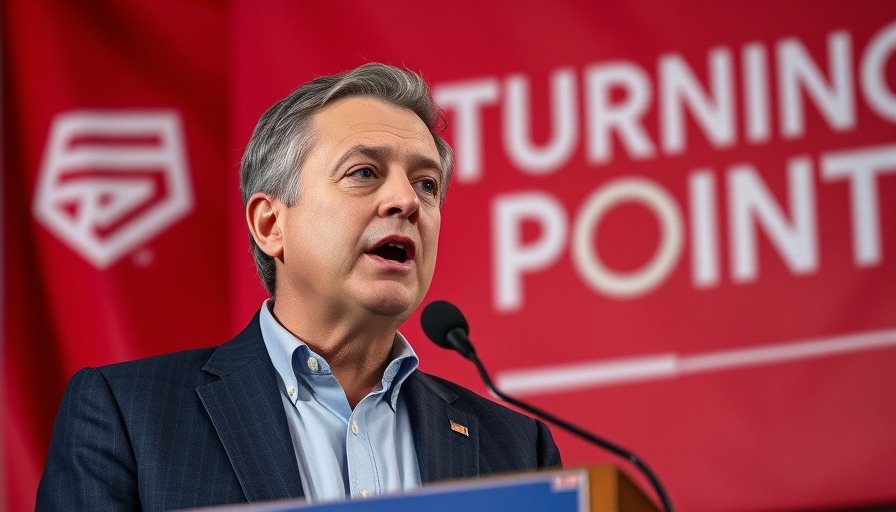
A Common Sense Revolution: The Heartland Speaks Out
In a world where narratives often clash, Scott Jennings took center stage in Tampa to declare that common sense, long thought to be in retreat, is experiencing a renaissance in America. His remarks, rooted in the current political climate and aimed at dissenting voices, suggest a wave of renewed energy among conservatives who see themselves as champions for the working class. Jennings’ passionate appeal encompasses a variety of critical issues, from economic policies to gender debates, that resonate with many in the heartland.
In 'Scott Jennings Shares Message To 'Mindless Liberals,' Who Tell Him He'll Regret His Vote For Trump,' the discussion dives into the political landscape post-election, exploring key insights that sparked deeper analysis on our end.
The Case for Trump: Evaluating Leadership Effectiveness
At the crux of Jennings' message is his assertion that President Donald Trump is overseeing one of the most productive presidential terms in recent history. He contends that Trump's policies—favoring American citizens over illegal immigrants, promoting job growth, and reinforcing national security—have struck a chord with working-class Americans, who feel marginalized by the political elite. Jennings highlights specific changes made under Trump's administration, such as energy independence and tax reforms, advocating that these have laid the groundwork for a robust economy. It begs the question: Are Trump's critics overlooking significant gains in favor of political biases?
The Grassroots Movement: Why Common Sense Matters
Jennings emphasizes a grassroots revolution, reflective of a substantial portion of the populace that believes in straightforward, common-sense policies. This 'movement' underlies the growing frustration many feel about the perceived condescension from more progressive circles towards blue-collar workers. As Jennings frames it, there is a disconnect between elite narratives and the realities folks experience in their daily lives. By appealing to middle America, he posits that this movement is not just political; it is cultural and deeply personal.
The Narrative Wars: Defending Western Civilization
As Jennings champions free speech and self-expression, he also draws attention to what he sees as an assault on Western civilization by radical elements attempting to rewrite the narratives surrounding gender identity and cultural heritage. He warns against complacency, calling on Americans to boldly defend their values and ideas, signaling that the stakes are high. Such discourse raises important questions about identity politics and the direction of societal norms. Are we at a crossroads in defining what it means to be American?
A Call to Action: Standing Up for Values
With a clarion call to resist the pressure to conform, Jennings urges his audience to challenge narratives they oppose actively. He believes the fight for common sense and traditional values is far from over; rather, it's just beginning. His message resonates with many within his audience who feel emboldened to stand up against political correctness and assert their beliefs. What steps can individuals take in their own communities to foster these ideals further?
In conclusion, while the political landscape continues to shift and change, voices like Scott Jennings’ serve as reminders of the importance of grassroots movements and the defense of common sense in American life. The complexities of political discourse require open dialogue, and Jennings advocates for a more engaged public, one that resists the label of 'mindless liberals' while also forging ahead. As he ends on a hopeful note, there’s a collective sense that this revolution is just warming up.
 Add Element
Add Element  Add Row
Add Row 



 Add Row
Add Row  Add
Add 


Write A Comment